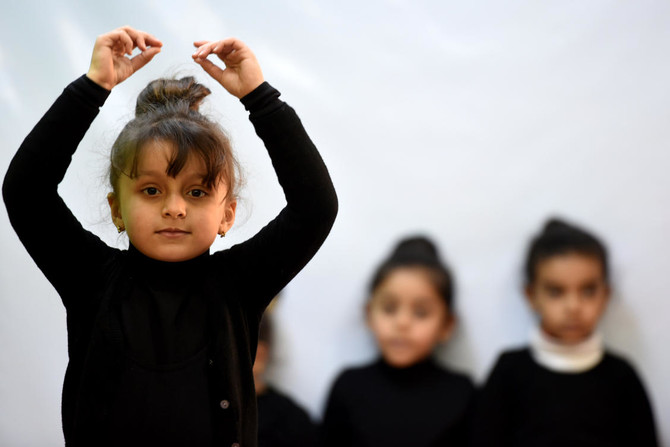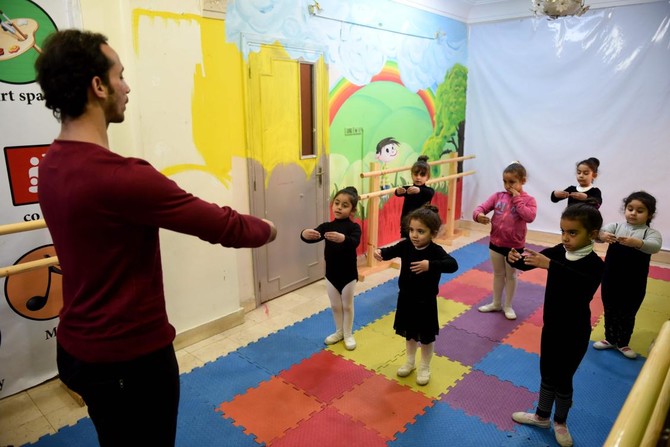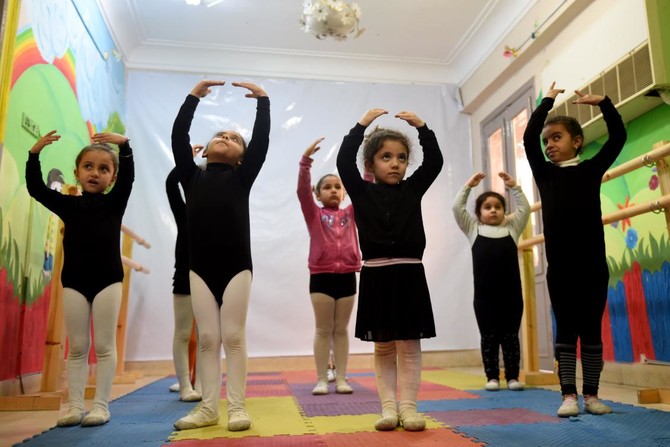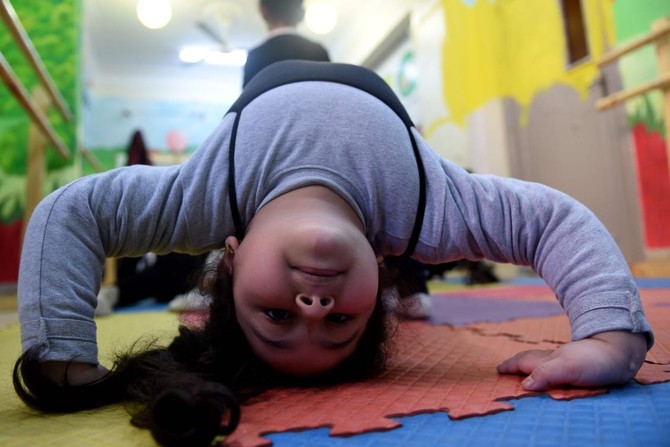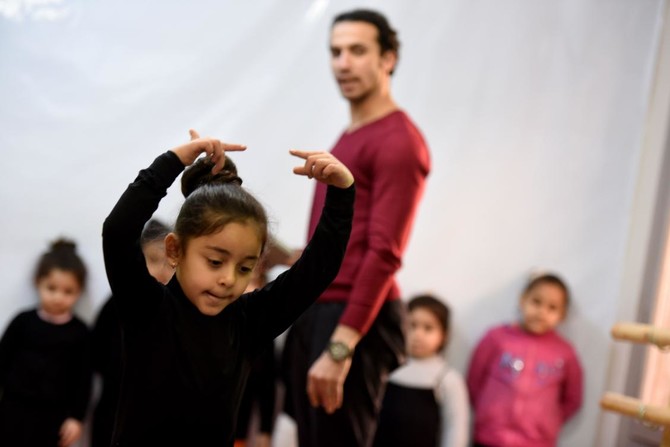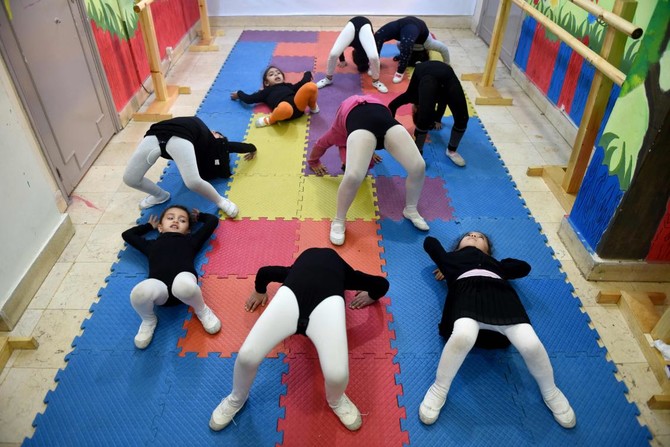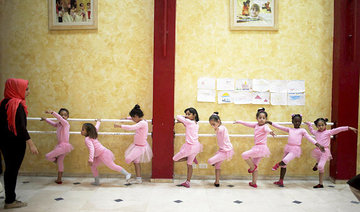EGYPT: In Egypt’s conservative southern province of Minya, young girls in black leotards and white tights wobble on their tip toes to classical music in a room painted with colorful motifs.
“Look forward, stretch your arms,” a male instructor calls out to the girls aged four and above.
They try to mimic their teacher, a professional ballet dancer from the capital, as he gracefully raises his arms over his head.
It’s a surprising scene in the traditional province, which more often makes headlines for family feuds or sectarian violence against its large Coptic Christian minority.
But the founders of the Alwanat Center in Minya city are determined to make it the first ballet school in the wider Upper Egyptian province of the same name.
“Society is a bit insular in Minya. They say there’s some extremism here,” says Marco Adel, one of the center’s founders.
“We want children to be more open to life, to like art,” says the 33-year-old law graduate, who is an avid drawer.
In the almost two years since ballet lessons started at the center, they have become a great success, with parents driving up to one hour from nearby towns to bring their children to lessons.
Christine Essam, whose daughter Eleina is learning ballet steps at the center, says she and her husband thought carefully about signing their four-year-old up for classes.
“Most people around us — whether family or friends — were against it. They’d say: ‘Couldn’t you find anything other than ballet?’“
“Girls in Upper Egypt are expected to wear modest clothes,” the 26-year-old pharmacist says, adding it is a “bit hard” to make dance socially acceptable.
Around 160 students aged four to 26 — including boys — now flock to lessons at the center, Adel says, up from 15 after classes were launched in May 2015.
Most Muslim girls and women who come to learn ballet wear a headscarf, he says, and they can choose to learn with one of the center’s three female instructors, including two who also don the Islamic hijab.
But for more than a month, the center has also had a male instructor.
Mamdouh Hassan, a professional dancer with the Cairo Opera Ballet Company, travels the 240 kilometers (150 miles) from Cairo every weekend to teach the next generation.
Adel says a few parents have complained about a man teaching their daughters, but eventually, the instructor was accepted.
“At first, we were a little surprised. But we were told he was very experienced and we trust the center,” Essam says.
Vivianne Sobhi, the mother of seven-year-old Farah, says social barriers have started to break down in Minya.
“These days girls go swimming in swimsuits,” the 27-year-old teacher says.
Running a ballet school hundreds of kilometers from the capital is not without its challenges.
Male instructor Hassan was once two hours late because the motorway from Cairo was closed due to fog, and the center had to order ballet shoes from the capital as none were available in the southern city.
Adel says the Alwanat Center — which also offers Zumba and music classes, as well as theater and cinema workshops — was born of “personal efforts.”
“But the culture ministry or sponsors are welcome to help,” Adel says, pointing to the center’s small rooms.
But parents seem happy.
As he helps his five-year-old daughter Heaven arch her back for a gymnastics move called a bridge, Adel Gerges says he is thrilled with her experience at the center.
“We were deprived of all of this during our childhood,” says the 35-year-old pharmacist.
“We won’t make the same mistake with our daughter.”


